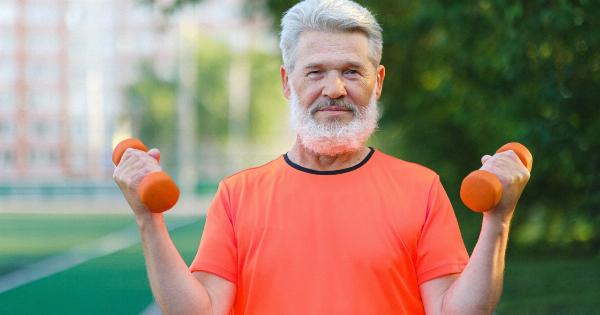Vitamin D is an essential nutrient that plays a crucial role in maintaining overall health, especially in seniors. It is a fat-soluble vitamin that can be obtained through sunlight exposure, certain foods, and supplements.
However, many older adults struggle to maintain adequate levels of vitamin D, which can lead to various health complications.
The Importance of Vitamin D for Seniors
Vitamin D is essential for seniors as it helps in the absorption of calcium, promotes bone health, and supports overall immune function.
As people age, their ability to synthesize vitamin D decreases, making it even more important for seniors to obtain sufficient amounts through other means.
Benefits of Vitamin D for Seniors
1. Stronger Bones and Osteoporosis Prevention:.
Vitamin D plays a vital role in bone health by aiding in the absorption of calcium. It helps in maintaining bone density, reducing the risk of fractures and osteoporosis in seniors.
2. Improved Muscle Function:.
Seniors with adequate levels of vitamin D have better muscle strength and function. It can help prevent falls and injuries, improving overall mobility and quality of life.
3. Reduced Risk of Chronic Diseases:.
Vitamin D deficiency has been linked to an increased risk of various chronic diseases, including heart disease, diabetes, and certain types of cancer.
By maintaining optimal vitamin D levels, seniors can potentially lower their risk of these conditions.
4. Enhanced Mood and Mental Well-being:.
Low vitamin D levels have been associated with an increased risk of depression and cognitive decline in seniors. Sufficient vitamin D intake may help improve mood and cognitive function, promoting overall mental well-being.
5. Immune System Support:.
Vitamin D plays a crucial role in supporting the immune system, especially in seniors who may be more susceptible to infections and illness. Adequate vitamin D levels can help strengthen the immune response and reduce the risk of infections.
Sources of Vitamin D
1. Sunlight Exposure:.
The most natural and efficient way to obtain vitamin D is through sunlight exposure. When the skin is exposed to sunlight, it produces vitamin D.
However, seniors should be cautious about sun exposure, especially during peak hours, and consider using sunscreen or protective clothing to prevent skin damage.
2. Foods Rich in Vitamin D:.
While it may be challenging for seniors to obtain sufficient vitamin D through sunlight alone, there are several food sources rich in this nutrient.
Some examples include fatty fish like salmon and mackerel, fortified dairy products, egg yolks, and certain mushrooms.
3. Vitamin D Supplements:.
In cases where natural sources are inadequate, supplements can be an effective way for seniors to meet their vitamin D requirements. It is important to consult with a healthcare professional to determine the appropriate dosage for each individual.
How Much Vitamin D Do Seniors Need?
The recommended daily intake of vitamin D for seniors is 800-1000 IU (International Units). However, individual needs may vary depending on factors such as age, overall health, and existing vitamin D levels.
It is best to consult a healthcare professional to determine the appropriate dosage.
Risks of Vitamin D Deficiency
Vitamin D deficiency is prevalent among seniors and can have serious health consequences. Some risks associated with low vitamin D levels include:.
1. Increased risk of osteoporosis and fractures.
2. Muscle weakness and decreased mobility.
3. Increased risk of falls and injuries.
4. Weakened immune system and increased susceptibility to infections.
5. Higher risk of chronic diseases, such as heart disease and diabetes.
6. Possible impact on cognitive function and mental health.
Conclusion
Vitamin D is an essential nutrient for seniors, playing a pivotal role in maintaining bone health, supporting the immune system, and promoting overall well-being.
Seniors should ensure they have adequate sun exposure, consume vitamin D-rich foods, and consider supplements if necessary. By unlocking the benefits of vitamin D, seniors can improve their quality of life and reduce the risk of various health complications.































